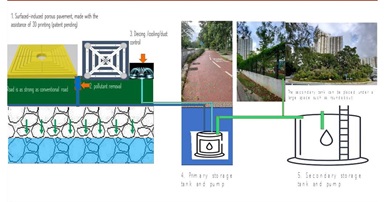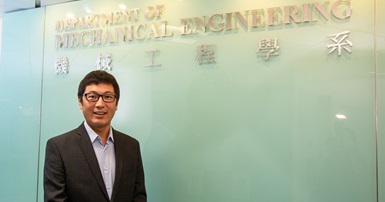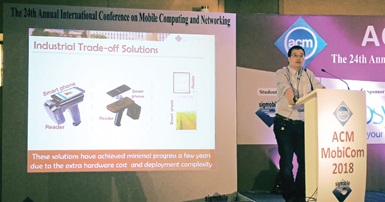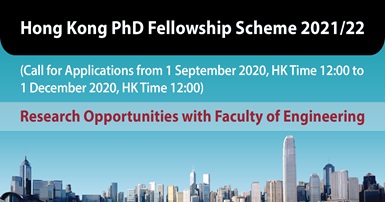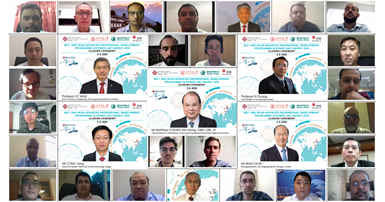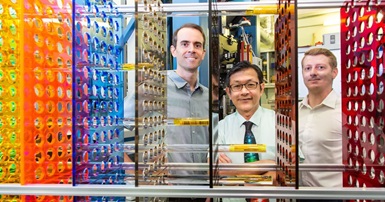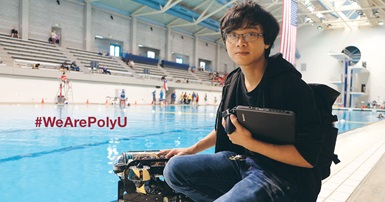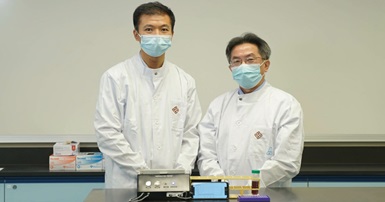PolyU-XJTU Silk Road International School of Engineering “Belt and Road Advanced Professional Development Programme in Power and Energy 2020” successfully completed Over 200 professionals trained in three years New opportunities opened up for the industry
The “Belt and Road Advanced Professional Development Programme in Power and Energy” (the Programme), organised for the third consecutive year by the Silk Road International School of Engineering (SRISE) in partnership with power corporations from Mainland China and Hong Kong, was successfully completed yesterday (2 September). Nearly 150 participants from 26 countries/regions joined the online closing ceremony officiated by Mr Matthew CHEUNG Kin-chung, Chief Secretary for Administration of the Hong Kong Special Administrative Region Government and senior executives of the co-organisers, to witness the fruitful results achieved over the last three years.
SRISE was set up jointly by The Hong Kong Polytechnic University (PolyU) and Xi'an Jiaotong University (XJTU) in 2017, with a view to promoting collaboration in higher education and scientific research among the Belt and Road countries and regions, Mainland China and Hong Kong, and to nurturing diversified talents for global development. Since 2018, SRISE has been partnering with the State Grid Corporation of China (State Grid) and The Hongkong Electric Company, Limited (HK Electric) to organise annual programmes. This cross-regional and multi-cultural university-industry collaboration, being the first-of-its-kind in Mainland China and Hong Kong, has attracted more than 200 industry professionals to participate in its three years of operation.
The theme for this year’s programme was “High-quality, Sustainable, Resilient Power Grid for Green and Smart Living”. In view of the COVID-19 pandemic, a series of web-based activities including talks and interactive webinars hosted by experts from State Grid, XJTU, PolyU and HK Electric were launched in mid-August to replace field trips and seminars held before. Even though participants were unable to visit the power facilities in person, they could benefit from the convenience of the internet to connect and interact with speakers and participants, and to share the latest industry knowledge of power and energy.
A total of 12 talks and webinars were held during the eight-day training, attracting a record of nearly 150 industry professionals from 26 countries/regions, including senior executives from enterprises and government agencies, as well as veteran academics and researchers. Since all activities were held online, we were able to accommodate more participants this year than in the past. Countries/regions that they are represent include: Thailand, Singapore, Malaysia, Kazakhstan, Pakistan, Mainland China, Hong Kong and Macau; participants from European countries included in the Belt and Road initiative, such as Romania, Portugal, Italy, Greece and Ukraine, as well as Brazil, Chile, Panama, Russia, South Africa and Nigeria also joined the event via the internet.
In addition to Mr Matthew CHEUNG Kin-chung, other officiating guests at the closing ceremony included Professor H.C. MAN, Dean, Faculty of Engineering of PolyU; Professor XI Guang, Vice President, XJTU; Mr CONG Yang, Executive President, State Grid of China Technology College, and Mr WAN Chi-tin, Managing Director of HK Electric.
In his video message, Mr CHEUNG said he was truly impressed by the overwhelming response that the Programme has received despite the global challenges of COVID-19. Energy partnership is a key area for the Belt and Road Initiative development and Hong Kong’s power sector plays an important role.
“In Hong Kong, electricity supply has been safe, reliable and affordable. With professional services of world-class standards and rich experience in city management, Hong Kong is well placed to contribute in terms of professional collaboration and capacity building by enhancing the professional knowledge and experience of Belt and Road partners in areas such as clean energy and sustainable development,” he noted. “Indeed, Hong Kong enterprises and professionals have been participating in a number of Belt and Road energy projects, both in the traditional electricity generation sector as well as in renewable energy production and smart grid. We are keen to see more of our city’s multi-talents joining hands with their Belt and Road counterparts. We are confident that there are ample opportunities of collaboration in the energy services sector and in the wider context of capacity building.”
Professor H.C. MAN, Dean of Faculty of Engineering of PolyU, concluded the three-year programme stating, “Electricity is one of our major energy sources; it is pivotal for a country or region to maintain its sustainability and stability. At PolyU, we are committed to combining the expertise and industry experience of universities in Mainland China and Hong Kong, working towards effective knowledge transfer. As PolyU excels in the engineering discipline, we are honored to be able to contribute our expert knowledge to support the training of professionals from the Belt and Road countries/regions. We look forward to future collaboration with the higher education sector and industry partners, so as to create further opportunities for knowledge exchange and to nurture future talents for the industry.”
Professor XI Guang, Vice President, Xi'an Jiaotong University remarked, “‘The Belt and Road Advanced Professional Development Programme in Power and Energy’ was the debut university-industry collaboration project coordinated by the Silk Road International School of Engineering. Over three years, more than 200 professionals in power and energy sector across the globe have been trained in both theory and practice. I would like to express my heartfelt gratitude to State Grid and HK Electric for making this university-industry collaboration possible.”
Mr CONG Yang, Executive President, State Grid of China Technology College, said, “The influence of the programme has continued to grow since its inception in 2018. This year, we have overcome the negative impacts of the pandemic by moving our activities online. We have placed more emphasis on sharing and interactions among participants, and the feedback was remarkably positive. Going forward, we will keep up our joint efforts to sustain the vitality of the programme and to contribute to a better future for the Belt and Road Initiative.”
Managing Director of HK Electric, Mr. WAN Chi-tin, said, “HK Electric has been committed to providing customers with safe, stable and reliable power supply. We have maintained our outstanding track record in supply reliability, achieving a world class rating of over 99.999% for the 23rd consecutive year. To combat climate change and promote a green future for Hong Kong, HK Electric will build 3 new gas-fired generating units with the first one already commissioned earlier this year. Besides, we have launched a ‘Virtual Reality Training Centre’ which simulates real working environment by using virtual reality technology. I am very pleased that our engineers could learn and share their experiences with industry counterparts from Belt and Road countries and regions through this year’s theme talks held online.”
“The Belt and Road Advanced Professional Development Programme” aims to support the Belt and Road Initiative and respective policies of the Nation and Hong Kong by strengthening relations, knowledge exchange and collaboration among the Belt and Road countries/regions; serving as a platform for technology exchange between industry professionals and researchers, and as a driving force to foster collaboration between governments and enterprises; as well as helping to enhance the electricity infrastructure of the Belt and Road countries/regions so as to promote integration with international standards. In 2018 and 2019, 30 and 25 participants respectively graduated from the programme. Nearly 3,800 contact hours were generated through talks, seminars and field trips held at different locations, during which participants were able to interact with each other, and visit various high-end power facilities including the State Grid’s Ultra High Voltage Experimental Base in Beijing and various training facilities in Jinan, the State Key Lab of Electrical Insulation and Power Equipment in Xi'an, as well as the System Control Centre and Lamma Power Station of HK Electric in Hong Kong, to learn about cutting-edge technologies and modern management theories. They also had the chance to gain practical knowledge and experience from experts from PolyU, XJTU, State Grid and HK Electric.
The three-year programme has generated over 5,300 hours of interaction, establishing a communication platform which connects power and energy managers from among the Belt and Road countries/regions. Additionally, the programme has contributed to nurturing future industry leaders, and has facilitated the urban development of the countries/regions involved.
[From PolyU Media Release]

